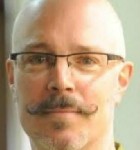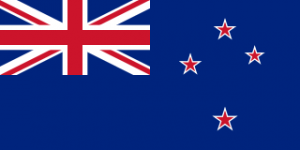 On 29 October 2014 the Social Care Workforce Research Unit at King’s hosts a seminar examining workforce migration in health and social care (places still available). Prof Jill Manthorpe, Director of the Unit, is joined by Prof Stephen Bach, Department of Management at King’s: they will be the formal respondents to a presentation given by Professor Robin Gauld who is the 2014 NZ-UK Link Foundation Visiting Professor. Here, Robin Gauld introduces his work, which focuses on health workforce migration between New Zealand and the UK. (531 words)
On 29 October 2014 the Social Care Workforce Research Unit at King’s hosts a seminar examining workforce migration in health and social care (places still available). Prof Jill Manthorpe, Director of the Unit, is joined by Prof Stephen Bach, Department of Management at King’s: they will be the formal respondents to a presentation given by Professor Robin Gauld who is the 2014 NZ-UK Link Foundation Visiting Professor. Here, Robin Gauld introduces his work, which focuses on health workforce migration between New Zealand and the UK. (531 words)
The week of 6 October saw significant media coverage in the UK of the 2014 State of Medical Education and Practice report by the General Medical Council. This indicated that around half of all migrating doctors are departing for the shores of Australia and New Zealand. One newspaper summed it up as: ‘…They cost us £610,000 to train – but 3,000 a year are leaving us for a life in the sun…‘.
There has always been a two-way flow of migrants—temporary and permanent—between ‘down under’ and the UK. However, when it comes to doctors, the market today is increasingly global and competitive; many can choose where they want to live and how long they want to live there. Some go in search of work opportunities, especially younger doctors seeking training places; some want to see where Frodo trekked; some want to escape for a more relaxed life and a better family environment. These are all factors known to pull doctors to Australia and New Zealand. My research, which I will present on 29 October at King’s College London, also shows that a majority of doctors seek to escape from the NHS. They go to New Zealand where they find that New Zealand’s public health care system is better than the NHS to work in. They also like the less bureaucratic ‘can do’ ethos of New Zealand.
While the UK media may be alarmed at the departures, New Zealand, where I am from, relies heavily on the foreign inflow. It holds the unenviable position of highest importer of doctors amongst OECD countries. Currently, almost 44% are from abroad. Without them, the health system would not function. Not only has New Zealand experienced ongoing medical workforce shortages, it has also been seeking to expand its medical workforce  and the proportion of overseas-trained doctors filling places has tended to outpace that of those locally-trained. For the UK graduate, the transition into New Zealand is relatively straightforward, with the Medical Council placing few hurdles to full registration and a license to practice. New Zealand has also been one of the highest exporters of domestically-trained doctors. Australia has been the main draw card, where salaries and conditions are better; the UK has also been a destination where training opportunities and overseas experience are important to career development.
and the proportion of overseas-trained doctors filling places has tended to outpace that of those locally-trained. For the UK graduate, the transition into New Zealand is relatively straightforward, with the Medical Council placing few hurdles to full registration and a license to practice. New Zealand has also been one of the highest exporters of domestically-trained doctors. Australia has been the main draw card, where salaries and conditions are better; the UK has also been a destination where training opportunities and overseas experience are important to career development.
The opportunities down under may be slowing down. Anecdote and policy shifts imply that, in future, it could be more difficult to secure a place in New Zealand. Like Australia, it has progressively increased the medical student intake and a larger pool of graduates is now seeking employment. Australia has become a tighter market for house surgeons and registrars meaning New Zealand’s young doctors are staying at home. The attractions of New Zealand have also improved, including a much strengthened dollar and therefore income in GBP. There is a vague aim to reduce the number of foreign doctors to 15% of New Zealand’s medical workforce by 2020 or so. However, areas such as general practice and psychiatry continue to be listed on the skilled shortage immigration category, meaning any doctor wishing to work in these fields is welcomed with open arms with beach and mountains never far away.
Robin Gauld is Professor of Health Policy, Department of Preventive and Social Medicine, University of Otago, Dunedin, New Zealand. He is also NZ-UK Link Foundation Visiting Professor at the School of Advanced Study, University of London (Oct-Dec 2014).
Health & Social Care Workforce Migration: NZ – UK patterns and policy. A SCWRU seminar with Professor Robin Gauld takes place at King’s College London on Wednesday, 29 October 2014. Event hashtag: #wkforcemigration. [See blog post reporting on the event, 3 November 2014]
Follow the Social Care Workforce Research Unit: @scwru. The Unit is home to ROWM, the Research On Workforce Mobility network. ROWM brings together researchers from around the world who are interested in the global mobility of social care and social work professionals.
Follow the NZ-UK Link Foundation: @NZUKLink